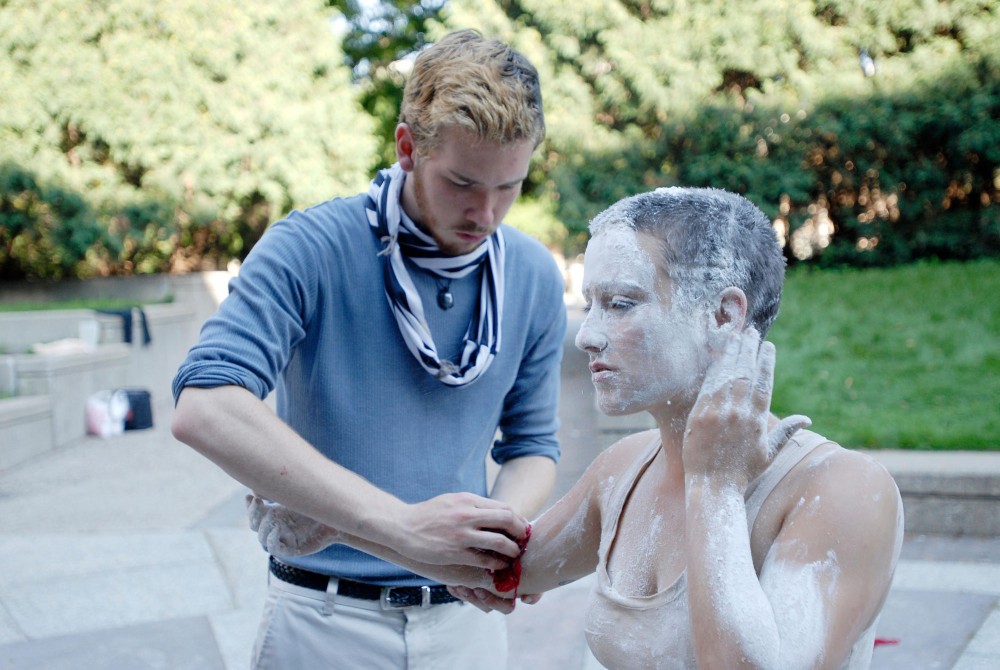Mike Mellas and Elliot Leffler didnâÄôt want to make a play about planes hitting buildings. They didnâÄôt want to make a play at all âÄî at least, not the kind of play audiences are used to.
Sunday nightâÄôs show about Sept. 11 flew in the face of theatrical tradition. Mellas and Leffler, doctoral students in the University of MinnesotaâÄôs theater department, abandoned scripts, auditions and the typical relationship between actors and the audience.
âÄúIf weâÄôre sitting in the dark, facing actors to whom we cannot talk for an hour-and-a-half, thereâÄôs no conversation happening,âÄù Leffler said.
Without ever creating a script, Mellas and Leffler worked with volunteer actors to devise the production, called âÄúRemembering 9/11: A Performance and Community Dialogue.âÄù
How did they do it? Crammed into the Rarig Center for three days, they had an opportunity to ask questions, reflect, improvise and ultimately mold the scenes that audience members cycled through Sunday.
The result was a play that started like any other. Actors performed a short scene in the pit of Rarig. Then, with urgent fanfare, impassioned âÄútour guidesâÄù split the audience into groups and led them up and down stairs through five different performance spaces in and around Rarig.
In each venue, actors energetically engaged audience members to interact with both the actors and each other. In one scene, actors visualized the people and countries involved in Sept. 11 with grains of rice.
During a particularly poignant scene put on in the circle outside Wilson Library, audience members watched four actors playing with water and singing nursery rhymes. Then, as one actor covered herself in flour, others began to wash audience membersâÄô hands and forearms with wet fabric. Audience members were then invited to join in and wash each other.
The three tour guides were the glue that held together the productionâÄôs scenes. As they took audience members from venue to venue, they spouted different perspectives associated with Sept. 11. The tour guides played a racist xenophobe, a conspiracy theorist and a woman who wanted to separate Sept. 11 from politics.
Following the final scene, audience members were given the chance to share their own perspectives.
Audience members, many of whom were only in elementary school on Sept. 11, were forced to reckon with their emotions, or lack thereof, concerning the infamous day.
Before rehearsals even started, Mellas and Leffler had correctly predicted that the post-show conversation would be the eveningâÄôs most vital component.
By starting it out with small group discussions, the performers created a comfortable space âÄî audience members were candid and open about Sept. 11. They shared their radically different emotions and experiences regarding the past 10 years.
âÄúWe want to catalyze an ongoing conversation about how we remember Sept. 11 on this campus,âÄù Leffler said.

Image by Satchell Mische-Richter
Nico Swenson, left, and Karen Gullickson rehearse a scene from “Remembering 9/11” Sunday outside of Rarig Center. The performance was made up of five vignettes followed by a community dialogue.
The power of memory
With a unique production, theater students asked campus to consider how we remember Sept. 11.
by Sarah Harper
Published September 12, 2011
0

